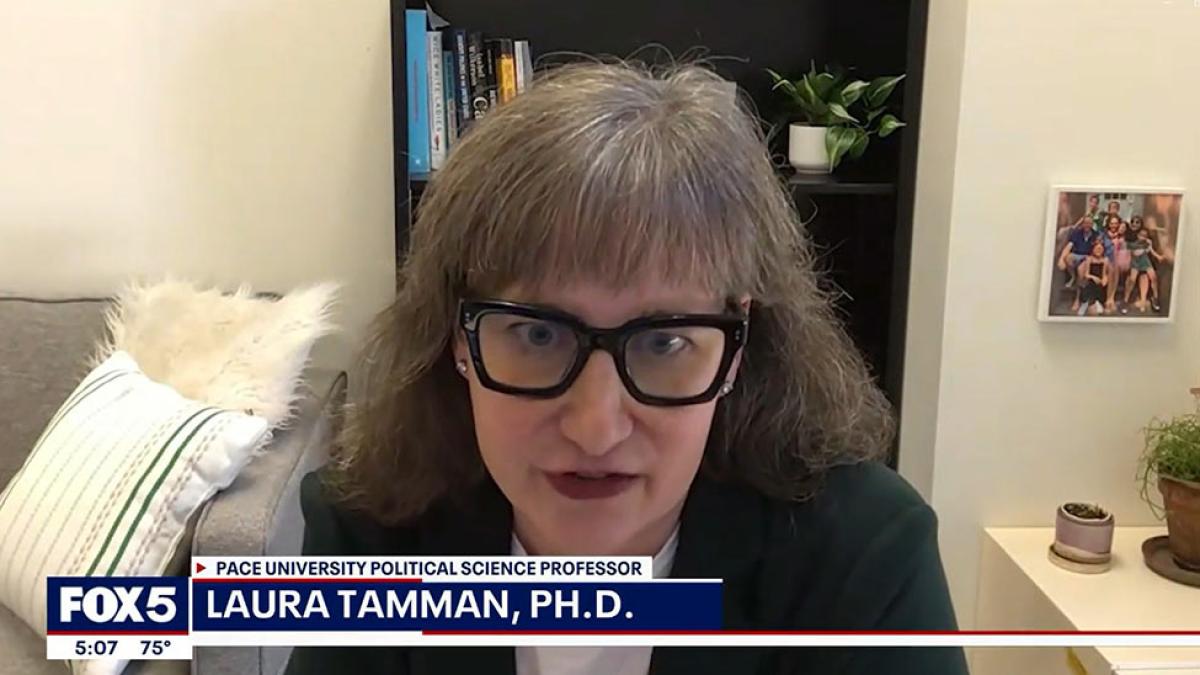Pace Now
Pace Now
Pace News
Latest News
Watch CBS2's Political Reporter Marcia Kramer's extended interview with Pace University professor and former NYPD Lt. Darrin Porcher.
Professor Christen Cooper, from the Pace University Nutrition and Dietetics, noted the low nutritious value of processed foods is a huge problem, pointing out that 3D food printing will still produce processed foods, but for some people, this could mean improved control and tailoring of nutrition–personalised nutrition.
“It may also be useful in making food more appealing to those with swallowing disorders by mimicking the shapes of real foods with the pureed texture foods that these patients–millions in the U.S. alone–require,” the professor stated.
Professor Christen Cooper, Pace University Nutrition and Dietetics, said the new technological could tackle low-nutrient food. She said: “We have an enormous problem with the low-nutrient value of processed foods.“3D food printing will still turn out processed foods, but perhaps the silver lining will be, for some people, better control and tailoring of nutrition-personalized nutrition. “It may also be useful in making food more appealing to those with swallowing disorders by mimicking the shapes of real foods with the pureed texture foods that these patients - millions in the US alone - require.”
We have a huge issue with the poor nutritional content of processed meals,” said Christen Cooper of Pace University Nutrition and Dietetics.
In a new Perspective article published today by npj Science of Food, lead author Jonathan Blutinger, a postdoctoral fellow in the lab, delves into these questions and discusses the advantages and drawbacks of 3D printed food with Professor Christen Cooper, Pace University Nutrition and Dietetics.
Professor Christen Cooper, from Pace University Nutrition and Dietetics, believes the new technology could tackle low-nutrient food. “We have an enormous problem with the low-nutrient value of processed foods,” she says. “3D food printing will still turn out processed foods, but perhaps the silver lining will be, for some people, better control and tailoring of nutrition-personalized nutrition. It may also be useful in making food more appealing to those with swallowing disorders by mimicking the shapes of real foods with the pureed texture foods that these patients – millions in the U.S. alone – require.”
In a new Perspective article published today by npj Science of Food, lead author Jonathan Blutinger, a postdoctoral fellow in the lab, explores these questions and more, discussing with Professor Christen Cooper, Pace University Nutrition and Dietetics, the benefits and drawbacks of 3D-printed food technology, how 3D-printed food compares to the “normal” food we eat, and the future landscape of our kitchens.
Pace University’s Lubin Professor Bruce Bachenheimer was featured in WalletHub's recent article about Most Innovative States.
How can state policymakers encourage and facilitate innovation?
First, policymakers must realize that encouraging and facilitating innovation is quite a long-term prospect, one that will extend well beyond regular election cycles. It requires a deep understanding of what would actually make the state attractive, an honest assessment of the state’s shortcomings, and a real commitment to meaningful action.
Dyson Professor Kimberly Collica-Cox Op-Ed was published in the Daily News: “I was having such anxiety…I’m not saying I was going to hurt myself, but when those pups came in, I’m just saying, it saved me.” This is the voice of an incarcerated mother who misses her children, a graduate of Parenting, Prison and Pups (PPP), the first and only program of its kind. Since 2017, PPP, an evidence-based parenting program, integrated with animal-assisted therapy (AAT), is provided to incarcerated mothers at the Westchester County Department of Correction, in partnership with Pace University and Hudson Valley Paws for a Cause. With March hailed as Second Chance Month, a commitment to furthering reintegrative processes, PPP provides a second chance to incarcerated mothers who want to maintain healthy bonds with their children.
"Prosecutors almost never invite the target of the investigation to testify in the grand jury unless they're planning on indicting that individual," according to Pace University law professor and former prosecutor Bennett Gershman.







